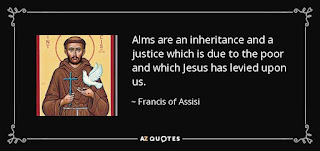CHRIST IN WINTER:
Reflections on Faith & Life for the Years of Winter—
I had a woman friend I’ll call “Jean.” Her husband, “Jim,” and I were friends first. That was true with many of my women friends over the years. They started out as the wives of men friends but became friends in their own right as we shared experiences.
Jean and an adult daughter, “Susan,” were totally estranged. The estrangement had caused problems with Jean and Jim’s other children, too. Susan was not speaking to her mother, would have nothing to do with her. But Susan would call the house to talk to her father. Jim would take the phone into a different room to talk to Susan.
One day, Jean called me, crying. “She’s ruining the family, but Jim’s choosing Susan over me,” Jean sobbed, “and I’m his wife. It’s not my fault Susan won’t talk to me. That’s her choice. Jim should be supporting me, not her.”
I felt her pain, and I knew she was right.
Jim and I were close friends, had shared a lot of life, so I felt comfortable talking to him about it. “I know Jean feels that way,” he said “but what can I do? I can’t turn my back on my daughter. Besides, somebody has to stay in contact with Susan or there’s never any chance that she’ll return to the family.”
I felt his pain, and I knew he was right.
The problem was, Jean and Jim couldn’t both be right. But that’s a false alternative, isn’t it? Because they were both right.
Poor Jim was caught in the middle. He needed to show Jean that he loved and supported her, but he needed to show Susan that he loved and supported her, too.
Jim was making one major mistake as he tried to deal with his wife and his daughter—he tried to reason with them. Tried to get them to see a better way. Appealed to their better angels. All that brain stuff.
I thought about how the disciples of Jesus had tried to rid a boy of a demon and been unsuccessful. Demons aren’t all the same, so they can’t be driven out the same way. Jesus said, “This kind can come out only by prayer.” [Mark 9]
Estrangement is caused by a demon, the kind that can come out only with prayer, the kind of prayer where you hug a person so hard that the demon just pops out.
I said, “Jim, you need to shut up. When Jean cries, don’t tell her she should try to understand Susan better. Don’t say a thing. Just go to her and hold her. When Susan calls, tell her that you aren’t going to say anything, you’re just going to listen to her talk about anything she wants to say. Don’t say a word about Jean. Just tell Susan that you love her.”
Susan asked me to officiate at her wedding. When Jim died, of her several children, Jean went to live with Susan.
There are some demons that come out only through a special kind of prayer, the sort of prayer where we listen instead of talking. Then the demon pops out.
John Robert McFarland









